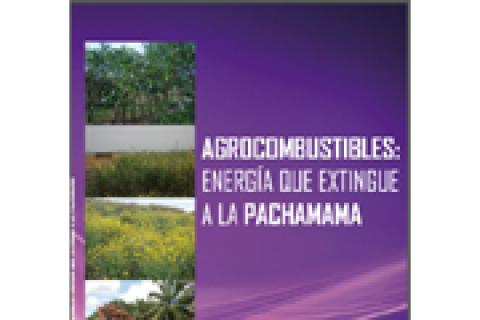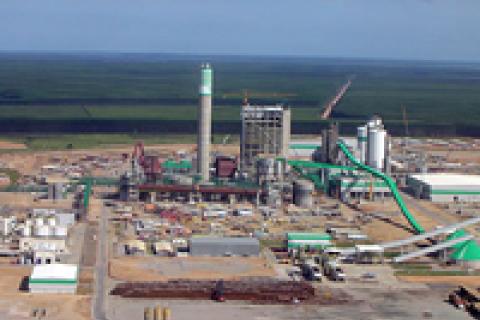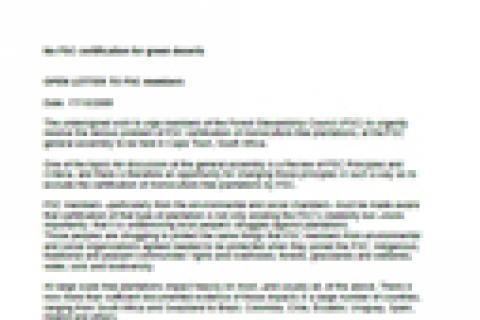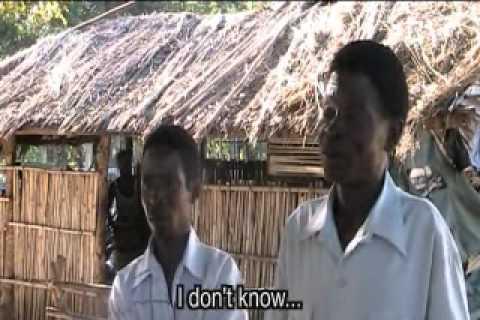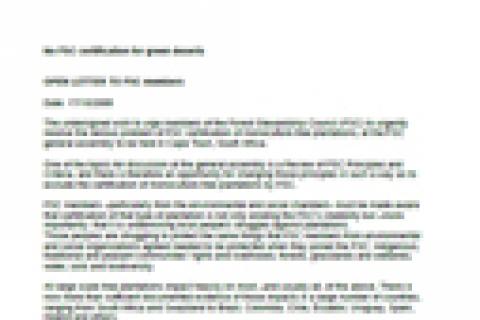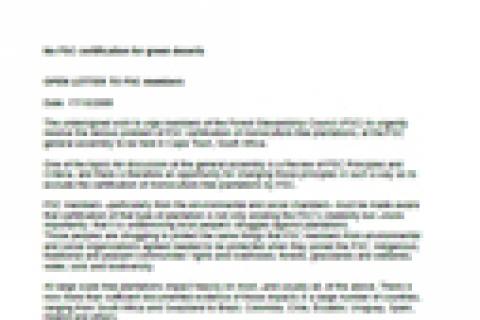Hundreds of trees of native species used by local communities – such as neem, lemon, sehjan, amla, jamun, mango, chironji and mahua – were symbolically planted in the District Court headquarters in Robertsganj, capital of the district of Sonbhadra in the northern Indian state of Uttar Pradesh, on July 4, 2011 by tribal women to protest the tree plantation drive being undertaken by the Forest Department, with funding from the Japan International Cooperation Agency (JICA).
Other information
In the South East of Africa, Mozambique glimmers like a bright jewel in the African sunlight.
The coastline stretches thousands of kilometres, the warm Indian Ocean feeding the abundance of life. Ragged tooth and Zambezi sharks patrol the coral reefs, alive with sounds in an underwater spectacle of a wide variety of colourful fish, manta rays and turtles. Line-fish, muscles, crabs, shrimps, prawns and crayfish, these rich food resources are available in Mozambique, and have been feeding the people for thousands of years.
Oil palm has historically played an important role in Benin and oil palm plantations, as opposed to naturally occurring palm groves, were established in the 19th century to meet an increasingly greater demand for palm oil from Western countries, primarily to supply their soap factories.By this time, oil palm was grown on an estimated 500,000 hectares of land in Benin, and the processing of oil palm products was entirely manual, carried out by women small-scale producers.
Only available in Spanish -
Por Elizabeth Bravo y Nathalia Bonilla. Las nuevas políticas de agrocombustibles en el Ecuador - Setiembre 2011
Download as pdf
Dear friends,
We would like to invite you to support the following action, which is being launched as part of the activities for the International Day Against Monoculture Tree Plantations.
This action is being coordinated by our friends at CEPEDES in Brazil, who have been working for years to support and coordinate resistance to the expansion of monoculture eucalyptus plantations and the pulp mill owned by Veracel Celulose.
Brazil, September 2011, various organizations.
Only available in Portuguese -
Read the letter here
Based on a demand of our friends from Geasphere from Southern Africa, we are urging for an end to the financing of the establishment of eucalyptus and pine plantations in Mozambique which are causing negative impacts, especially land conflicts with peasant communities. The letter will be sent to the Global Solidarity Forest Fund which invests in these plantations.
As September 21, the International Day Against Monoculture Tree Plantations, draws ever closer, we continue to collect reflections, experiences and testimonies that capture the prodigious life of forests, so utterly different from the sterile uniformity of industrial tree plantations.
Myths, legends and stories comprise a rich treasury of knowledge and collective observation that preserves essential and symbolic elements of everything of significance to human beings.
By the NGO Forum on Cambodia - Final Report.
Field Investigations in Koh Kong, Kampong Speu, Pursat, Kampong Chhnang, Mondolkiri, Prey Veng and Svay Rieng Provinces.
Download full document as pdf
The tribal villages of Surma and Golbojhi celebrated their liberation on the occasion of International Labour Day on May 1. The freedom came after 107 years of struggle when the tribals got ownership of the forestland they have been dependent on for centuries. Home to about 450 Tharu tribe families, the two forest villages are situated in the core zone of the Dudhwa National Park in Lakhimpur district of Uttar Pradesh (UP).
Women of South Asia working in several areas including health, nutrition, livelihood, environment, gathered in Dhaka, Bangladesh on July 2 and 3, 2011, for the Third Annual Conference of SWAN (South Asia Women’s Network), which was dedicated to the theme of “Women of South Asia and the Green Economy”.
Only available in Spanish -
By Guadalupe Rodríguez, Salva la Selva.

